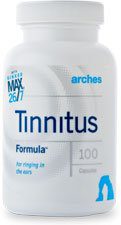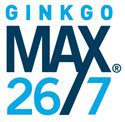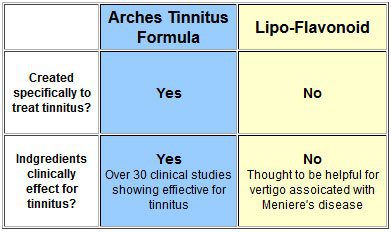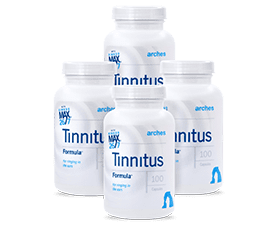By Barry Keate
Barry Keate, has lived with tinnitus over 40 years and has published 150+ research articles on numerous aspects of tinnitus. He is an expert on the condition and a well-known advocate for those with tinnitus.
Author’s Note: When Arches Tinnitus Formula was introduced in 1998 there was only one other company offering help to relieve tinnitus. Arches Tinnitus Formula was based on verifiable scientific research and employed ingredients shown in numerous clinical studies to be effective for tinnitus.
With the explosive growth of the Internet, numerous “tinnitus relief” companies have sprung up; many making exaggerated claims, even “miracle” cures. In this confusing and growing landscape of tinnitus products, how does the savvy consumer know which product to choose?
 To help in this decision, we are embarking on a series of articles comparing the science behind Arches Tinnitus Formulas and our competitor’s offerings. This is the first article in the series. Articles in this series will be found in our Tinnitus Research Library under the heading Arches vs. The Competition.
To help in this decision, we are embarking on a series of articles comparing the science behind Arches Tinnitus Formulas and our competitor’s offerings. This is the first article in the series. Articles in this series will be found in our Tinnitus Research Library under the heading Arches vs. The Competition.
Lipo-Flavonoid and Tinnitus
Lipo-Flavonoid is a proprietary, over-the-counter, dietary supplement that its manufacturers claim to be helpful for tinnitus. It is heavily marketed on the Internet and in television ads as well as being sold in retail stores and pharmacies. Lipo-Flavonoid was the other business offering an ear health product when Arches Tinnitus Formula entered the market in 1998.
Lipo-Flavonoid was created in 1961 by NUMARK Laboratories and contains small amounts of vitamins B and C, as well as lemon bioflavonoid complex. This complex contains eriodictyol glycoside, which is a bioflavonoid found in the rind of lemons, oranges and grapefruit. It was originally developed to help in the treatment of Meniere’s disease, which is characterized by ear fullness, vertigo, nausea, hearing loss and a low-pitched roaring tinnitus.
It is thought that the eriodictyol glycoside is the active ingredient in reducing symptoms of Meniere’s disease. While the mechanism of this bioflavonoid is not clear, it is proposed that it may act on histamine, which adds to inflammation and may play a role in the control of microcirculation in the inner ear. It is known that adding histamine will reproduce the symptoms of Meniere’s disease. Eriodictyol glycoside may well act as an antihistamine for people who have increased fluid pressure in the inner ear consistent with Meniere’s disease.
The earlier version of Lipo-Flavonoid contained 300 mg of lemon bioflavonoid complex. There is a newer  version called Lipo-Flavonoid Plus that does not disclose how much is in the formula. Instead, the label states there is a proprietary blend of lemon bioflavonoid complex, choline bitartrate and inositol. Choline bitartrate and inositol are generally considered to be in the B vitamin family. There is no way to tell how much of each component is included. Labeling a proprietary blend like this is legal but does not allow the consumer to know how much of each is in the formula.
version called Lipo-Flavonoid Plus that does not disclose how much is in the formula. Instead, the label states there is a proprietary blend of lemon bioflavonoid complex, choline bitartrate and inositol. Choline bitartrate and inositol are generally considered to be in the B vitamin family. There is no way to tell how much of each component is included. Labeling a proprietary blend like this is legal but does not allow the consumer to know how much of each is in the formula.
Clinical Studies on Lipo-Flavonoid for Tinnitus
So what does the science say about the effectiveness of Lipo-Flavonoid? In 1963 a research paper was published in which Lipo-Flavonoid was tested on 197 patients who had hearing loss, mostly due to Meniere’s disease. (1)
Of the 122 Meniere’s patients in the study, 50 (41%) had improved hearing and relief of vertigo, 45 (36.9%) had no change in hearing but relief of vertigo, and 24 (19.6%) experienced no improvement in hearing or vertigo.
In conclusion, the authors stated that eriodictyol glycoside has a beneficial effect on certain individuals with hearing loss, usually those associated with vertigo and other symptoms of Meniere’s disease.
Shortly after this, researchers at the Walter Reed Hospital decided to test lemon bioflavonoid on those with hearing loss-induced tinnitus that had no connection to Meniere’s disease. Seventy-five patients were included in the study and they were given lemon bioflavonoid in a dosage four times higher than the recommended dosage.
Results of the study showed that only one person in the group of 75 patients showed a hearing improvement and that person had been given a placebo! No participant receiving Lipoflavonoid in the study showed any reduction of tinnitus or hearing improvement. The researchers concluded that further prescription of Lipo-Flavonoid in those with sensorineural hearing loss in the absence of Meniere’s appears to be without justification. (2)
Most knowledgeable ENTs and hearing professionals are aware of this. Levi Reiter, PhD and Professor of Audiology at Hofstra University states, “There are no research papers that I am aware of that demonstrate the effectiveness of Lipo-Flavonoid or lemon bioflavonoid complex for tinnitus. However, there are references to its use for Meniere’s disease as it seems to act as an antihistamine.” (3)
For those who have tinnitus due to Meniere’s disease or inflammation of the inner ear, Lipo-Flavonoid may be of some benefit. For the great majority of tinnitus sufferers, who have tinnitus due to noise exposure and sensorineural hearing loss, it will not be beneficial.
Arches Tinnitus Formula for Tinnitus
Arches Tinnitus Formula was developed based on an abundance of clinical studies showing the ingredients used to be beneficial for tinnitus. These ingredients are; Ginkgo biloba Extract (our proprietary Ginkgo Max 26/7®), zinc picolinate and odor reduced garlic.
There are over 35 clinical studies that show the effectiveness of these ingredients for tinnitus. Of particular concern are the ones that show Ginkgo biloba Extract (EGb) to be effective for most people. N. Holstein conducted a literature survey of 19 clinical trials using EGb for tinnitus treatment. (4)
At the end of the review, the author concludes, “The investigations showed a clinical efficacy of EGb 761 in case of acute and chronic tinnitus. Two large-scale studies, however, established that in case of shorter durations of the disease a better prognosis and treatment success are to be expected in general. The clinically relevant conclusion to be drawn from this is to start treatment as early as possible.”
There is also clinical evidence Ginkgo biloba is helpful for Meniere’s and others with vertigo problems. A double-blind placebo-controlled study conducted in France on 70 patients with vertiginous syndrome, reported that over a 3-month period, “47% of patients who received Ginkgo biloba Extract (EGb761) were rid of their symptoms as opposed to 18% of those who received placebo”. (5)
Ginkgo biloba acts by three separate mechanisms to help calm tinnitus. Ginkgo increases blood circulation, specifically in the microcapillaries that feed the inner ear. It is a powerful anti-oxidant scouring damaging free radicals from the auditory pathway. Lastly, it is an active glutamate antagonist and provides neuroprotection to auditory neurons. Excess glutamate is one of the primary villains in the development of tinnitus and other degenerative neurological conditions.
This is a lot to digest and more than we need to present in detail here. There is an existing article that describes the complete mechanisms of action of Ginkgo biloba called, Arches Tinnitus Formula: The Science behind the Product.
Unfortunately, Ginkgo biloba is not always the highest quality. It is an expensive ingredient and some unscrupulous manufacturers have devised ways to include less expensive components that look like ginkgo in standard testing but are not effective. Consumer Labs has found more than 77% of over-the-counter ginkgo products sold in the US do not have adequate levels of one or more important compounds. Also, 67% of these products contained less than 20% of the stated amount of bilobalide, the compound most important for the reduction of glutamate toxicity and neuroprotection. This is the reason many people who try over-the-counter ginkgo do not have positive results.
Ginkgo Max 26/7® for Tinnitus
Arches Tinnitus Formulas has created a new, more powerful extract of Ginkgo biloba that is designed specifically for those with tinnitus. We have done this by using more raw material and refining it further to produce a more potent composition. Unlike many manufacturers who water down their product to increase profits, Arches has increased the concentration above what is considered standardized. Please see our registered Ginkgo Certificate of Analysis.
We have increased the flavonol glycoside component from the standardized 24% to a minimum of 26%. The terpene lactone content has increased from 6% to a minimum of 7%. Perhaps most importantly, the bilobalide content, which is responsible for neuroprotection, has increased from a standardized 2.6% (or about 0.5% in most products) to a minimum of 3.6%. This is a 40% increase over the standardized product and a 7-fold increase over most over-the-counter products!
Arches is dedicated to providing the highest quality, most effective tinnitus product on the market. It has been proven effective in numerous clinical trials for both tinnitus and Meniere’s disease. So, if you are looking for relief from tinnitus or vertigo, visit our website and use the product that will be the most effective for a reduction of your symptoms, Arches Tinnitus Formula.

References:
1 – Williams HL, Maher FT, Corbin KB, et al. Eriodictyol glycoside in the treatment of Meniere’s disease. Ann Otol Rhinol Laryngol. 1963 Dec;72:1081-101.
2 – Creston JE, Gillespie MR, LarsonAL. Bioflavonoid therapy in sensorineural hearing loss: A double-blind study. Trans AM Acad Opthalmol Otolaryngol. 1966 Sep-Oct;70(5):825-40.
3 – On-line forum, http://en.allexperts.com/Audiology-Otolaryngology-963/tinnitus-1.htm.
4 – Holstein, N. Ginkgo Special Extract EGb 761 in the treatment of tinnitus. Fortschr. Med. 118 (2000), p. 157-164.
5 – Haguenauer JP, Cantenot F. Koskas H, Pierart H. Treatment of equilibrium disorders with Ginkgo biloba Extract. AQ multicenter double-blind drug vs. placebo study. Presse Med 1986 Sep 25;15(31):1569-72.
Get Free Shipping!
Order now and get free shipping on either the Tinnitus Starter Kit or Combo Pack. Try the doctor recommended products with clinically proven ingredients for tinnitus. No coupon code required.

